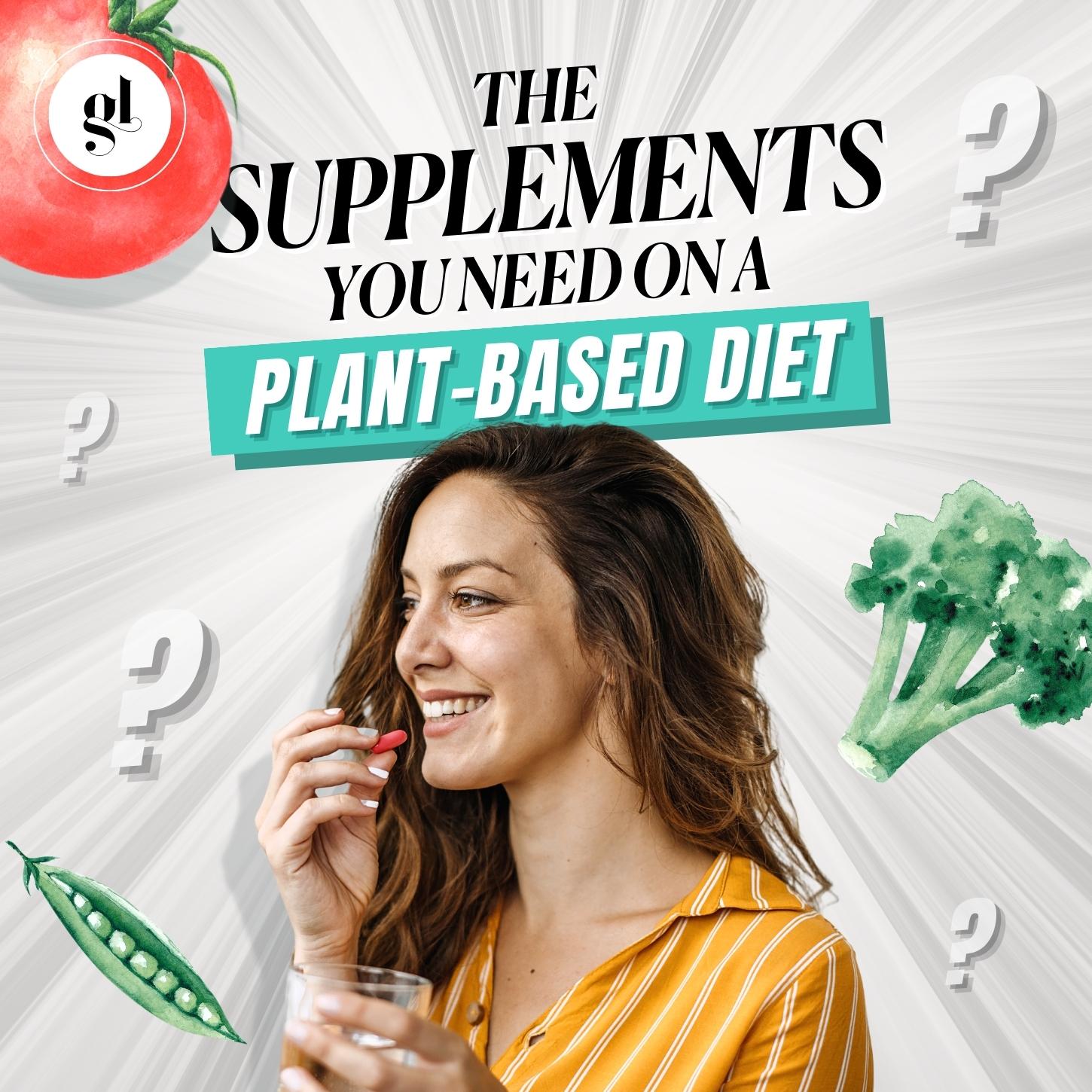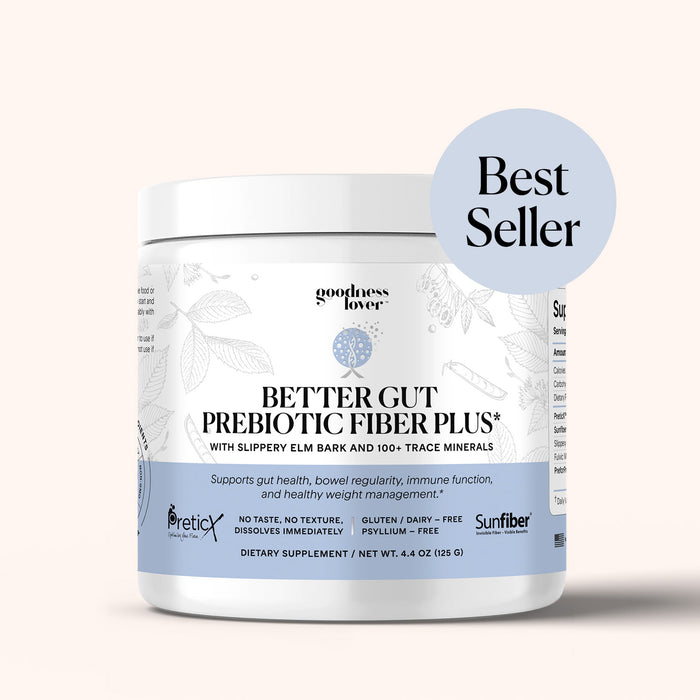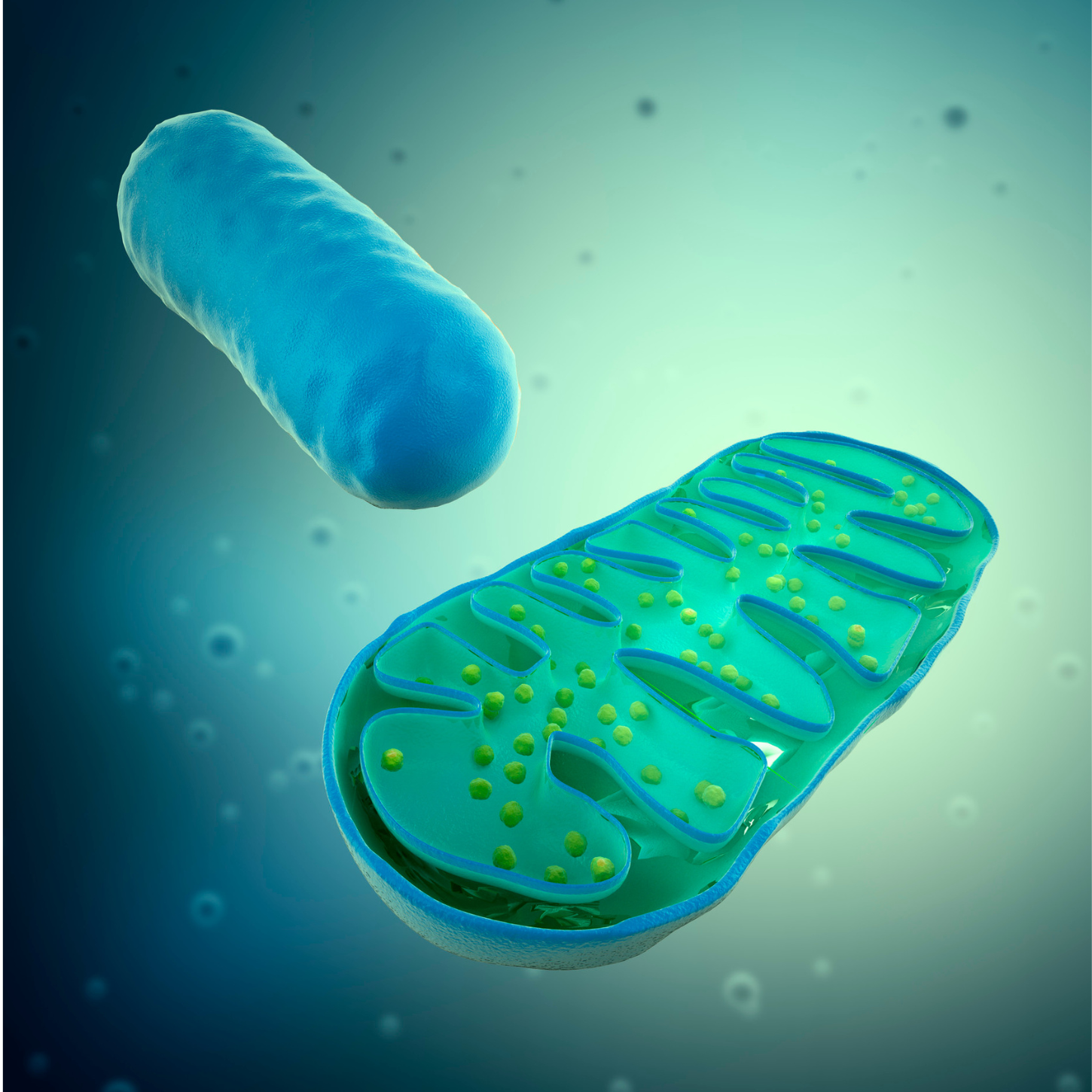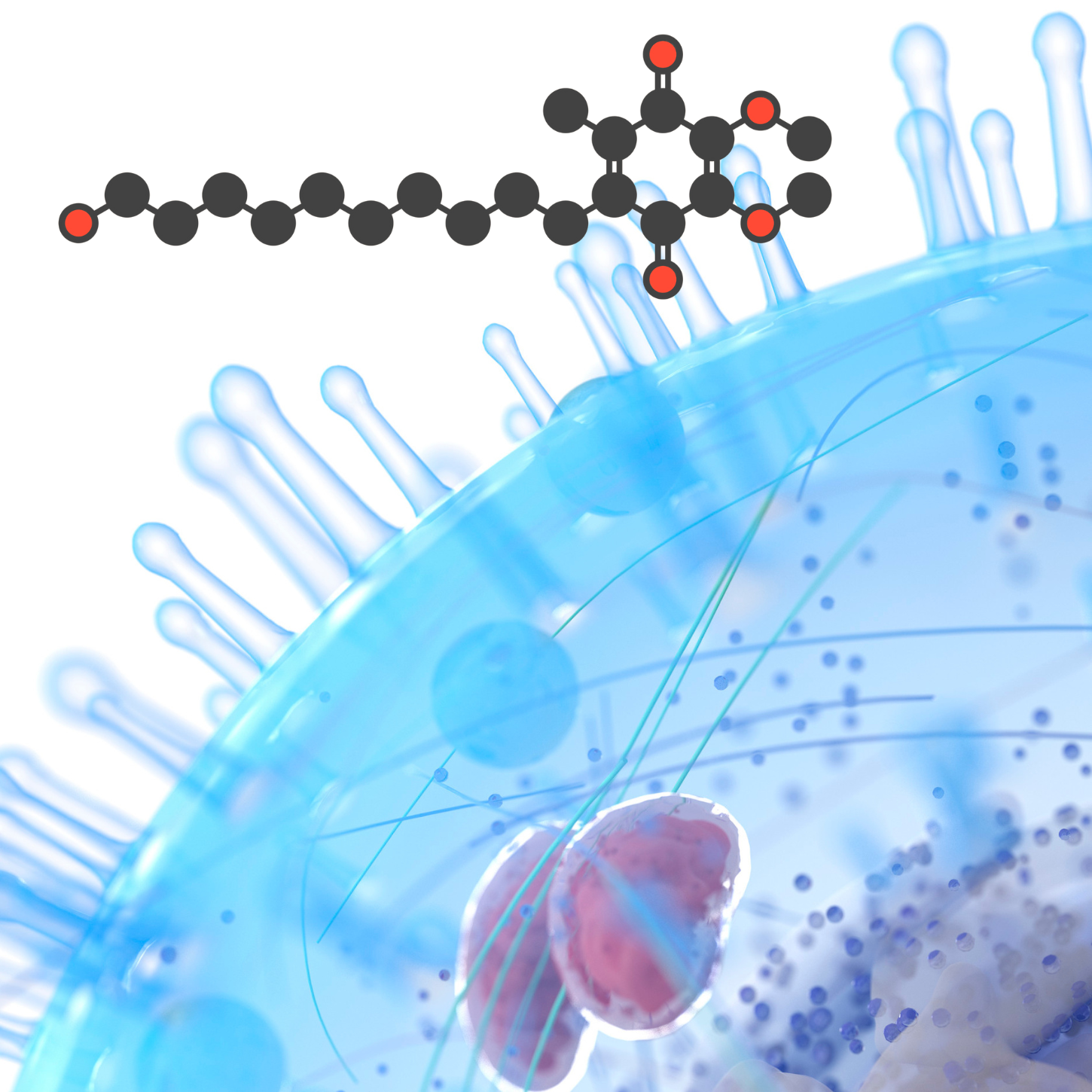You could eat fast food for every meal for 10 years and nobody would bat an eye, but start eating salads and green smoothies, and suddenly everyone starts worrying that you will shrivel up and waste away.
Now there's no denying that science supports plant-based diets to be optimal in preventing disease and extending your life span. However, the truth is, no matter what diet you follow, even a plant-based diet, you may still lack essential nutrients. Depleted soils and added chemicals on crops mean minerals may be missing and toxins could block the absorption of whatever nutrients your foods contain.
So if you're making the transition from burgers to veggies, pay attention! In this video, I outline the top most important supplements you should consider when going plant-based.
Transcript: The Supplements You Need On A Plant-Based Diet
You could eat fast food for every meal for 10 years and nobody would bat an eye, but start eating green salads and smoothies, and suddenly everyone starts worrying that you will shrivel up and waste away.
The most frequently asked questions you might encounter on a plant-based diet have to do with nutrients and whether you will meet your nutrient requirements.
The truth is, no matter what diet you follow, you may still lack essential nutrients. This is because the topsoil in which our food is grown is depleted of its minerals. In addition, our food is often grown with chemicals and certain toxins like heavy metals, which can accumulate in our bodies and prevent the absorption of important minerals. Also, modern western society has generally less exposure to sun and dirt than previous generations.
The bottom line is, whatever diet you follow, supplementation should be considered.
Today, I want to talk about nutrients and supplementation you should consider on a plant-based diet.
Due to these realities, many plant-based eaters aren’t getting specific nutrients from plant foods, and failure to get these nutrients can cause severe outcomes.
But let’s wade through some of the myths and look at what supplements you should be thinking about on a plant-based diet.
Now the first question that most plant-based eaters get asked is, “where do you get your protein from?”
This is one of the biggest myths that has endured about plant-based eating- that you can’t get enough protein from just eating plants. There is no evidence to suggest that plant-based eaters who eat a good range of plant foods are likely to lack in protein. In fact, even athletes can meet their protein needs on plant-based diets.
We used to be told that we had to combine complementary plant proteins (rice with beans, for example) at every meal to get all the amino acids contained in meat protein. Now health experts are saying that such rigid planning is unnecessary and that eating a wide variety of protein sources every day is sufficient. Although there is no need for the full range of essential amino acids to be part of every meal, it is clear that we do need all essential amino acids. This is why it is so important to consume a variety of protein sources. There are many plant sources that can help vegans meet their protein needs including peas, beans, lentils, chickpeas, seeds, nuts, soy products and whole grains such as brown rice and quinoa.
Calcium is another biggie.
For years we’ve also been told by the dairy industry and the media that we need to drink cow’s milk to get the calcium we need to keep our bones and teeth strong. However, this is simply not true. We can get our recommended dietary intake easily through plant foods. Plus, through increased consumption of fruits and vegetables, those who eat plant-based tend to have a lower renal acid load, which reduces urinary calcium excretion and bone resorption. In fact, in a 12 year Harvard study of 78,000 women, those who drank milk three times a day actually broke more bones than women who rarely drank milk.
The best forms of calcium come from plant-based sources including tahini or sesame seeds as well as green leafy vegetables, legumes, broccoli, brussels sprouts, collards, kale, mustard greens, and swiss chard. Beans and chickpeas are also good sources as well as tofu and other bean products. These sources are loaded with highly absorbable calcium and are also alkalizing and thus protect bone calcium levels. There are also calcium-fortified products such as soy milk.
Iron. Now this is an interesting one.
Getting enough iron can be challenging not only for plant-based eaters but also for women who eat meat. Studies have shown that iron deficiency is even more likely to be a problem for omnivores who consume large quantities of milk than for diet-conscious plant-based eaters.
Now while the iron in meat (which is called heme iron) is more readily absorbed than the kind found in plant foods, you can have too much. In fact, heme iron induces a pro-inflammatory environment as it triggers the production of reactive oxygen species, oxidizes lipids and proteins, and causes DNA damage.
To enhance iron absorption on a plant-based diet, a good trick is eating iron-rich plant foods such as dark leafy greens, lentils and tofu alongside foods high in vitamin C as vitamin C enhances absorption. Avoiding black tea with meals is also a good trick as the tannins found in tea binds to iron, decreasing absorption.
And if you are a menstruating female, it’s a good idea to check your iron levels periodically and supplement if needed.
Now there’s no denying that vitamin B12 is definitely one problematic area for plant-based eaters as no plant foods contain vitamin B12. It’s a good idea to get your B12 levels checked annually to make sure you are not deficient, as B12 deficiency can have some serious consequences. In addition, your ability to absorb B12 also decreases as you get older.
It is recommended that you should eat foods fortified with vitamin B12 (such as nutritional yeast, certain soy and rice beverages and breakfast cereals). However, often these products don’t contain enough and so supplementation is a good option, especially if you’re plant-based.
Omega-3 fatty acids is another supplement to consider as a deficiency has been associated with impaired cognitive function and depression as well as inflammatory diseases such as arthritis, autoimmune diseases, diabetes, heart disease and cancer.
While intakes of the omega-3 fatty acid a-linolenic acid (ALA) are similar in vegetarians (and vegans) and non-vegetarians, intakes of eicosapentaenoic acid (EPA) and docosahexaenoic acid (DHA) are low in vegetarians and almost completely absent in vegans. Also, our body is extremely inefficient in converting the omega-3 fatty acid ALA to EPA and DHA, which offer more potent health benefits.
If you are plant-based, you may want to do more than just boost your intake of omega-3 plant-based sources such as avocados, olive oil, flaxseeds, chia seeds and walnuts. Taking a high-quality EPA and DHA supplement derived from microalgae can help give you the amount of omega-3s you need per day.
Vitamin K2. This is a vitamin we don’t hear too much about.
Vitamin K2 plays many roles, but most importantly, it enables your body to manage calcium properly.
Vitamin K comes in different forms. Although we may consume plenty of K1 in a typical plant-based diet, we may be deficient in K2, which is only found in a few plant foods, such as the fermented foods natto and sauerkraut, and certain animal products, such as butter, meat and egg yolks.
Our bodies can convert K1 to K2, but it’s uncertain how much is being converted, and our bodies produce less K2 as we age. Therefore, daily supplementation of K2 is not a bad idea.
The last nutrient we’re going to mention to watch out for on a plant-based diet is zinc.
Zinc is an essential trace mineral that is most well known for its role in immune function.
Although zinc is found in a few plant foods, it is often bound to phytates, making it more difficult to absorb. In fact, the absorption rate for zinc from foods ranges from 16 to 50%, and zinc absorption also decreases as you age.
So supplementing with zinc may be the best option for plant-based eaters and older adults in general.
And that’s it folks! Those who choose to go plant-based often do for various reasons, whether it’s a choice based on health, personal preference, animal rights, or for environmental reasons. Whatever they are, and really, whatever diet you follow, it is important to appropriately plan your diet and consider supplementation. Bear in mind that deficiencies can take a while to become apparent and symptoms can be subtle at first but they can be avoided if your diet is comprehensive and well-planned.
Before you go, please like and subscribe, and please share in the comments what is motivating you to become more plant-based. And if you would like to learn more about how you can succeed on a plant-based diet, please check out this video here.














What Do You Think? Comment Below: